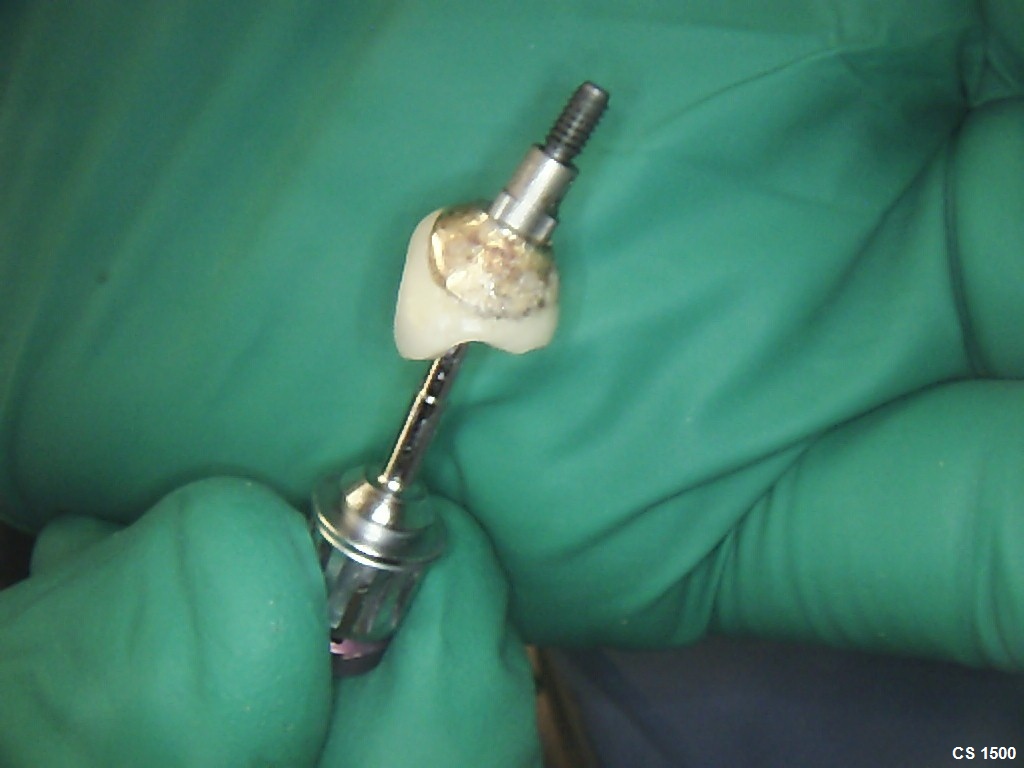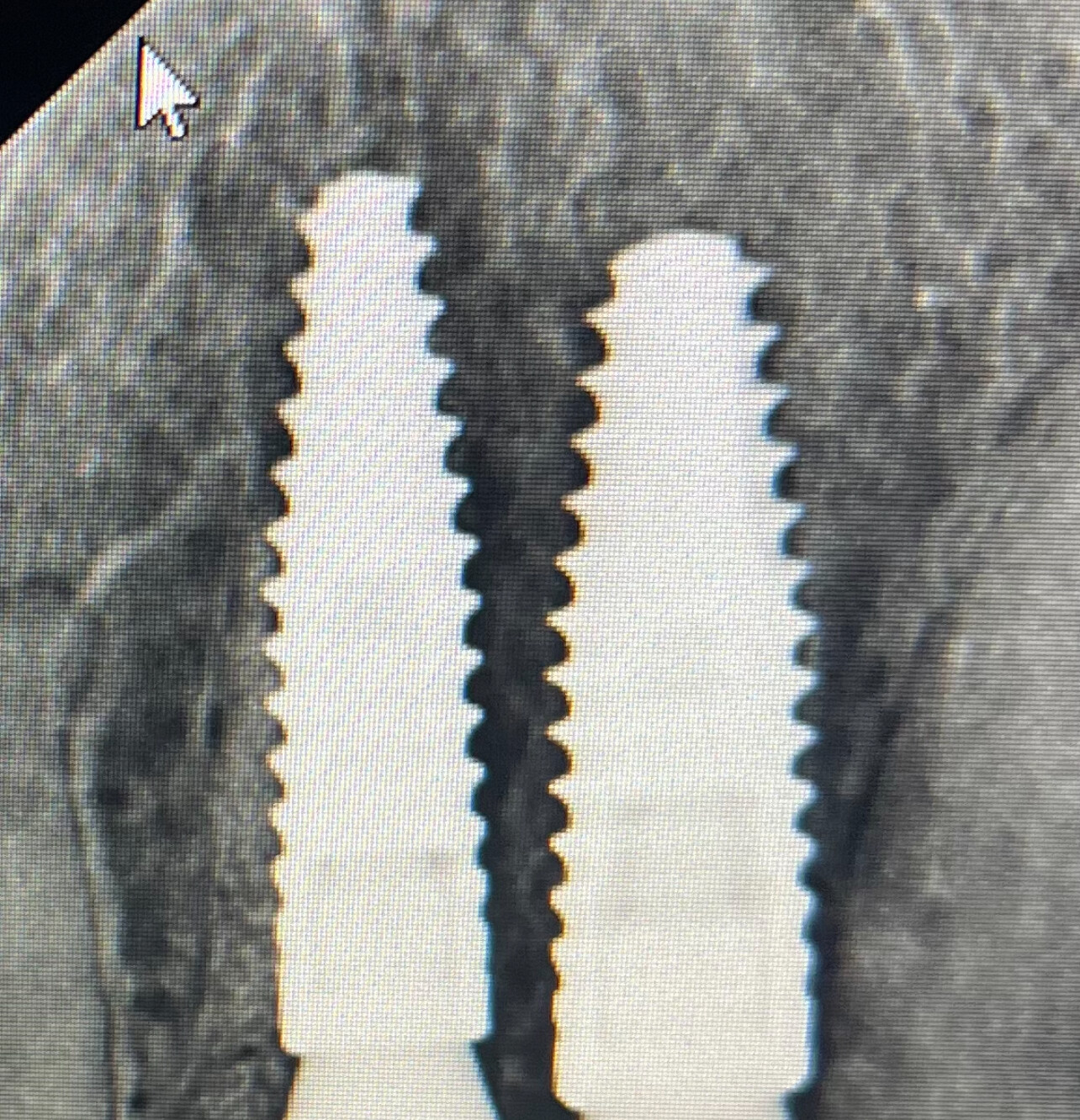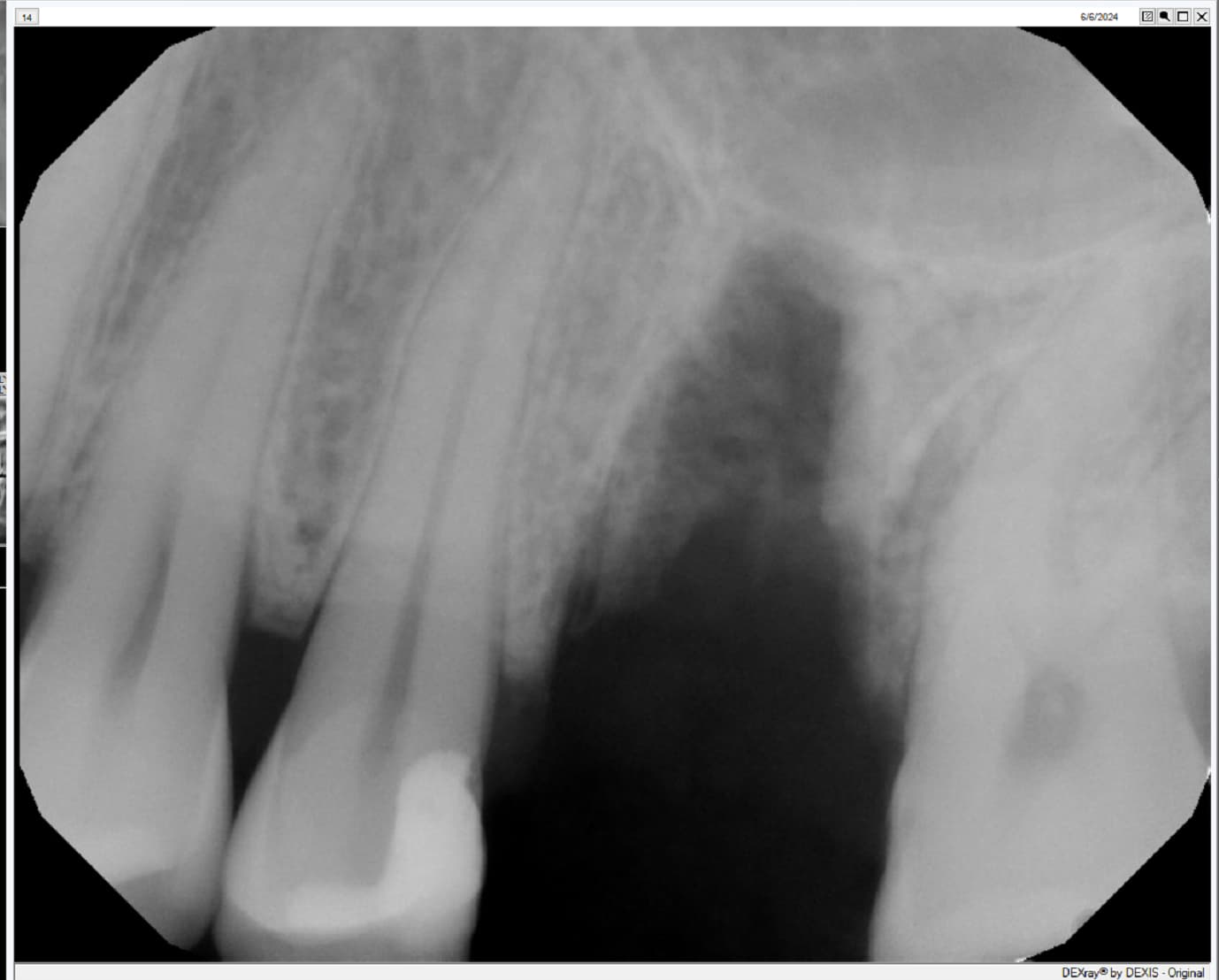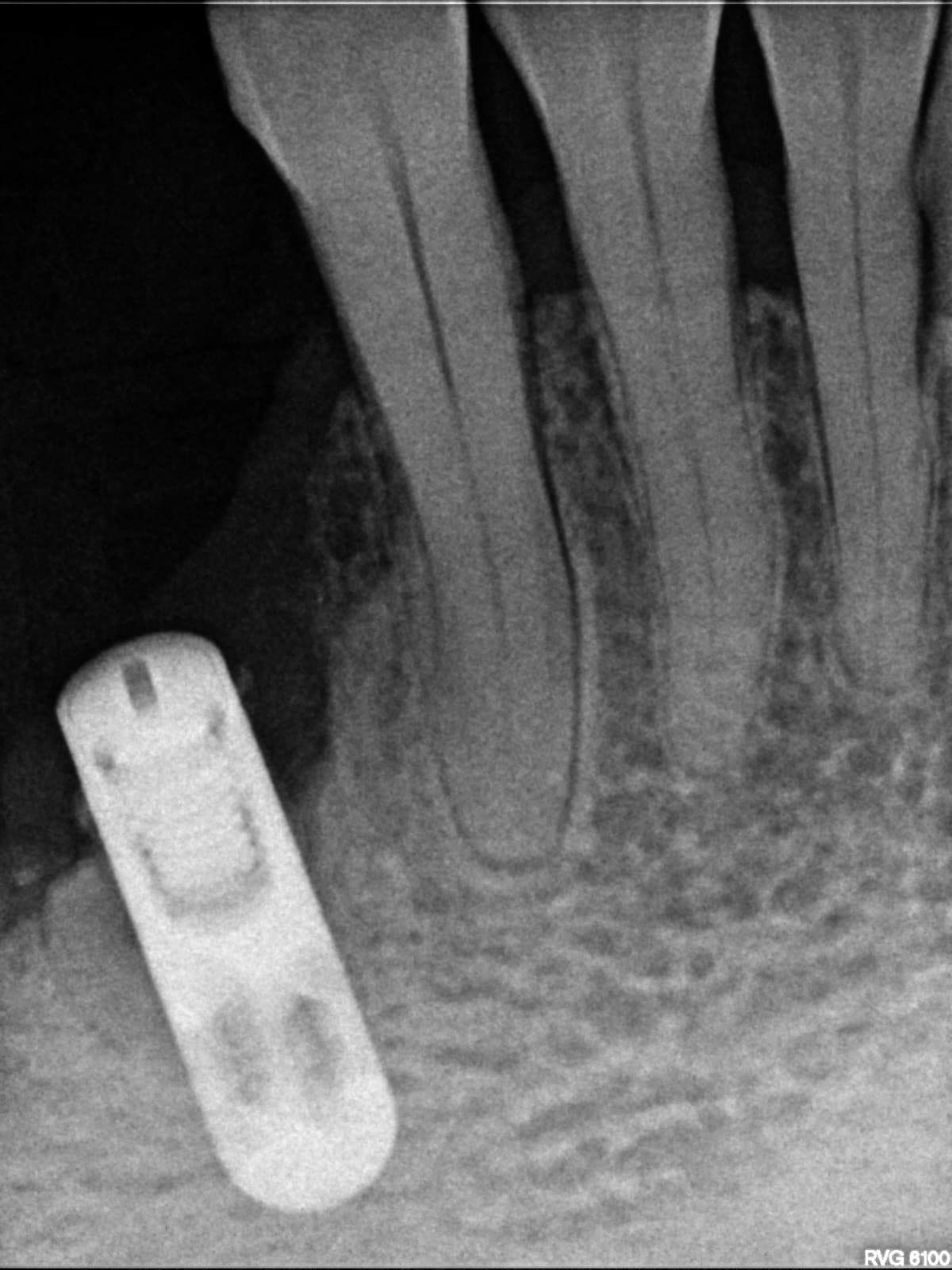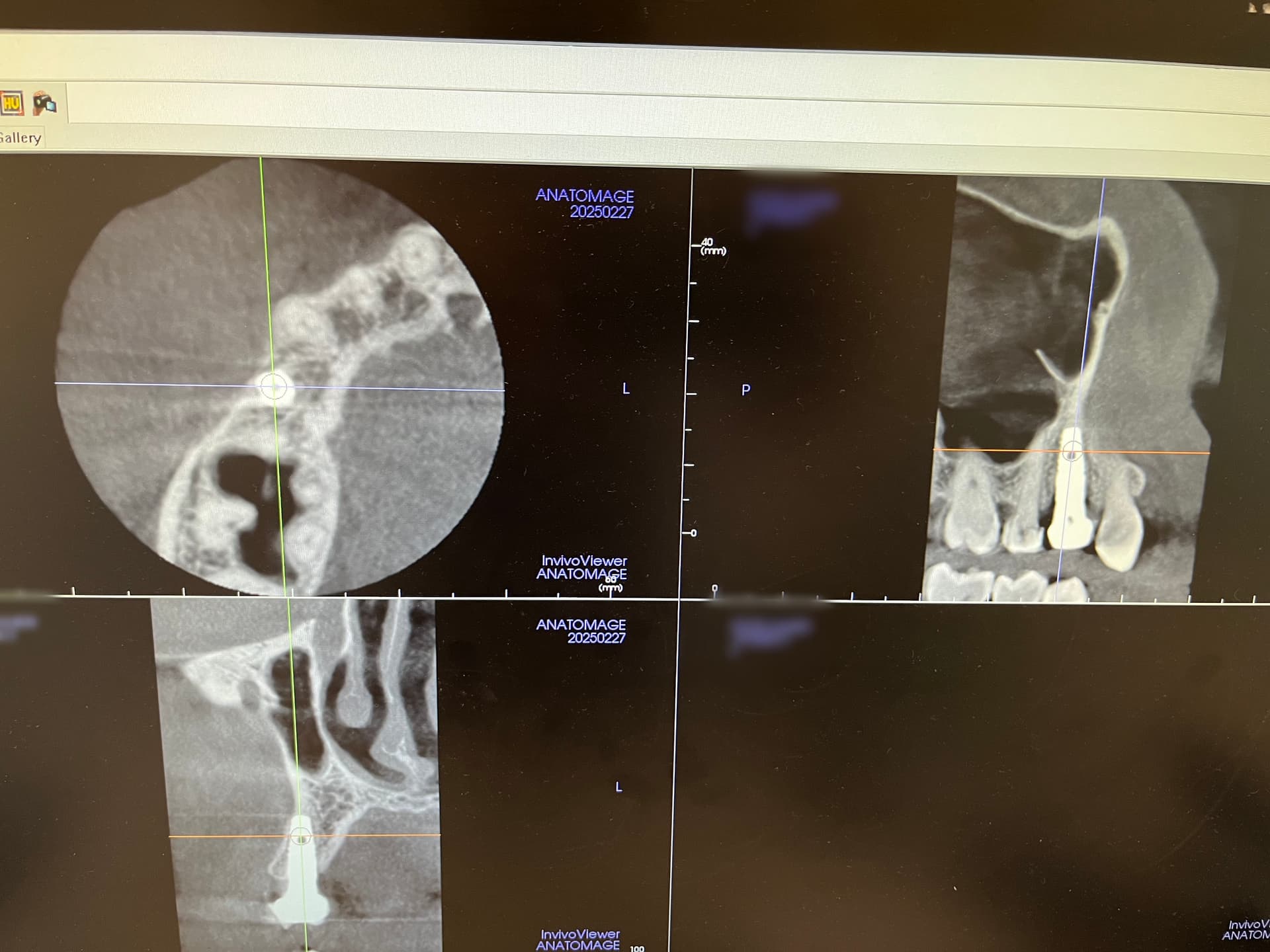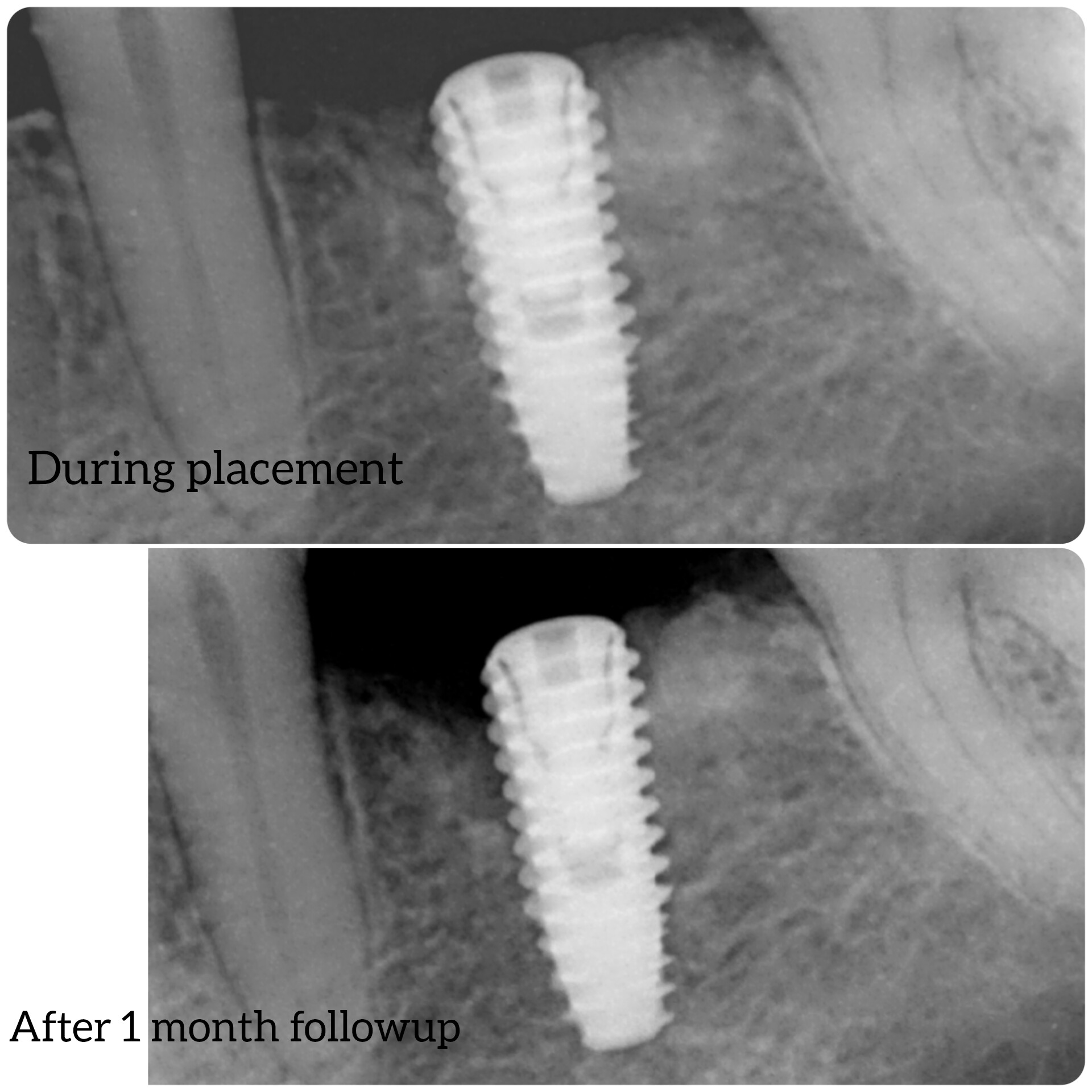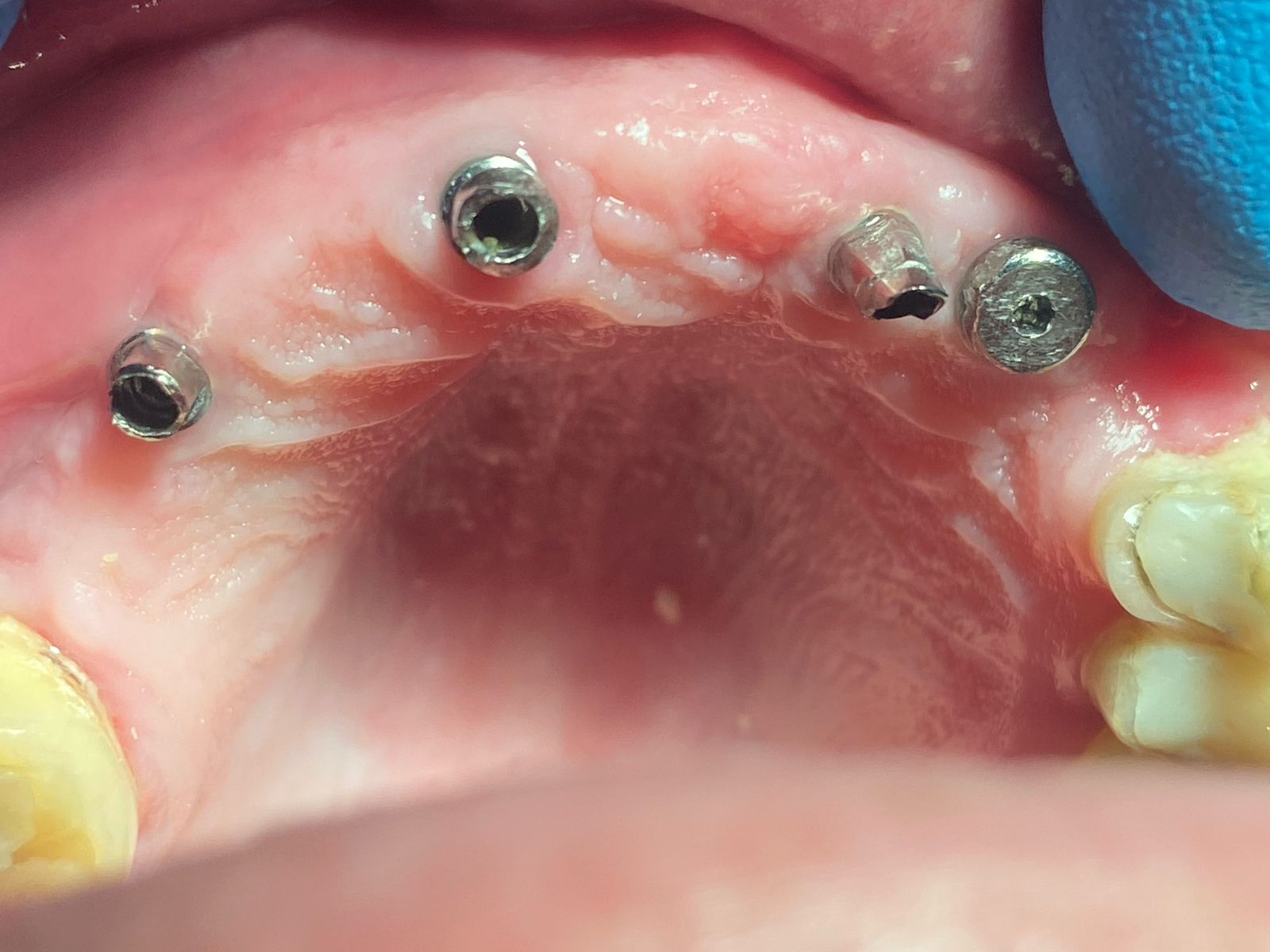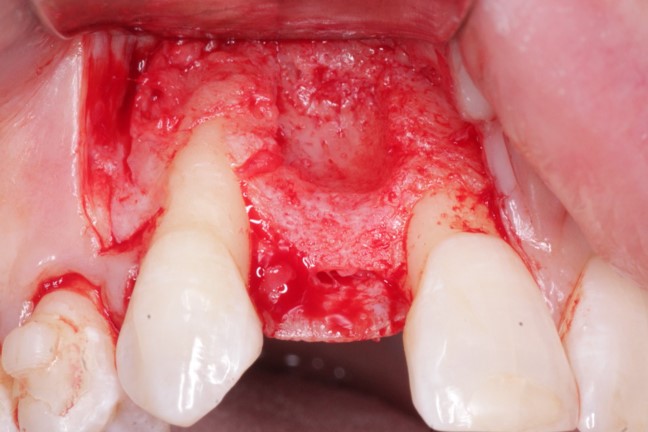Treatment Plan for Breast Cancer Patient?
Dr. S. asks:
I have a female patient who has just successfully been treated for second stage breast cancer. She completed surgery, radiation and chemotherapy 6 months ago. She needs extractions, bone grafts with immediate implant placement in her maxillary anterior and an immediate implant supported provisional anterior bridge. She is otherwise healthy and in good shape. I need to know whether she is a good case for bone graft, immediate implant with immediate temporary bridge.
8 Comments on Treatment Plan for Breast Cancer Patient?
New comments are currently closed for this post.
John Clark
4/2/2008
Advice to me from a Max/Fax friend is that this scenario is not normally an issue provided the jaw was clear of the field of radiation (which is normally the case). Naturally, you need to confirm this was the case with your patient before proceeding. I'd probably do a blood work-up as well to confirm the cytology is normal.
Bob
4/2/2008
From my experience with two comparable patients I recommend to ask about the use of bisphosphonates. They are not only used in cases with metastatic bone cancer, they are as well used as part of a preventive strategy after initial treatment. Whereas the first group receives an almost monthly infusion the second group receives quarterly or less infusions of zolendronate ( Brand Name "Zometa"). It is still unclear how to properly define ONJ risks for each group but written consent about that topic is mandatory.
AAOMS and Bone-Societys have issued guidelines.
Dr. Mehdi Jafari
4/3/2008
The real problem with the lady having a past medical history of breast cancer lies not only within the current health situation or blood morpholgy,but also in the list of the drugs which are prescribed for her.Most of these patients are lumpectomized or mastectomized or even radiated, however, a high percentage of them receive another adjuvant of treatment modality called "hormon therapy" as well.
Hormone (blocking) therapy is often used to treat women whose cancers are sensitive to hormones .It can also be used to decrease the probability of cancer recurrence and if the cancer has already metastasized, hormone therapy may inhibit and controls its further seeding and growth.So far, two groups of drugs are being used in this treatment modality.
1): Selective estrogen receptor modulators (Tamoxifen) are used to treat the women with hormone-sensitive metastatic breast cancer. Unfortunately, it includes some serious side effects like thrombogenesis and endometrial neoplasia.
2):Aromatase inhibitors that block the conversion of a hormonal substance (androstenedione) into estrogen, which effectively inhibits estrogen production in cells other than the ovaries.However,the major problem with aromatase inhibitors is an increased risk of osteoporosis.This osteoporotic condition which in some cases may be severe, can be a real challenge in the course of implant therapy.Bisphosphonates prescribed for the patients seem rational, mostly to deal with this osteoporosis rather than the bony metastasis of the breast neoplasia.
Dr. S.
4/4/2008
Thanks for the responses dear doctors! My patient under went chemotherapy and radiation in Nov/Dec. She lost lot of hair on the scalp during this period and has to wear a wig. To add to her misery her upper anterior bridge keeps coming off every 2 weeks, and both of us were contemplating implants. Could a few more doctors join in the discussion?
Dr Mehdi thorough as ususal! Where would osseo news be without you?
dr. khawer
4/14/2008
as far as bone is clear and no further radiation is required , there is no harm for implants.
JBM
4/15/2008
Exciting case and implants certainly are an option. Having treated head and neck cancer (both primary and metastatic) I have a few comments on treatment planning.
Firstly, I think you have done and will continue to keep up to date on the medical history, especially medication use (as in previous comments). Second, if no other contraindications exist, I would contact the radiation oncologist and ask for the "port films" or "port diagrams". These will define the boundries of the radiation. Ask for total dose and how fractionated. Since radiation effects are cumulative and do not decrease with time, this needs to be done for ALL her radiation exposures in the past. You will be able to take this information and document her area of exposure. In addition, a complete radiographic and clinical exam should be completed to exclude metastatic disease to the head and neck.
There are some good studies in progress and published about placement of implants into irratdiated mandibles. If the ports extend to the mandible, hyperbaric oxygen treatments can be explored.
Minimal flaps and excellent tissue handling are a must. Mini implants are another option. Lots to consider.
op
4/19/2008
The proposed surgical site for your implants is away from the primary site of radiation, no risk for ORN , If your patient received bisphosphonate therapy as complement to the cancer theraphy, may be a good idea to get a CTX test to get a relative value and asses the risk of bisphosphonate induced osteonecrosis, as far as chemotheraphy, I would consult when the treatment is going to conclude and monitor CBC count until patient is no longer neutropaenic or thrombocytopaenic .
wish you the best of success.
Dr S.
5/18/2008
Thank you Drs Khawer,JBM,op. I shall keep the forum posted of any details as and when they are available to me.
Incidentally her "regularly treating physician" has asked me to keep away from implants for the lady for atleast a 10 months to a year as her breast tumour biopsy report had been reported as "second stage" and he would want to re-evalaute her at that time to check out for recurrence and metastasis.
Thank you for keeping the discussion thread alive. i shall keep all of you informed.










